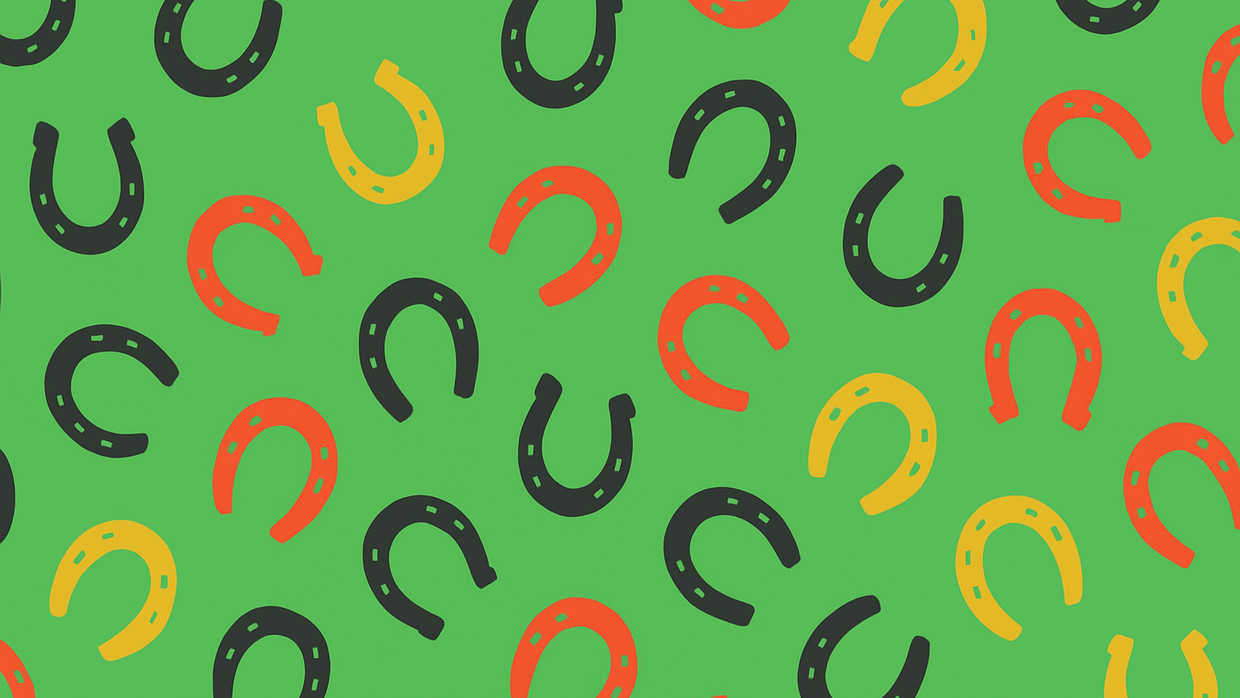
Personal Growth
3 min read
Personal Growth
4 min read
Personal Growth
5 min read
Ideas
6 min read
4 min read
On Yom Kippur, the lottery of the two goats reminds us that success often hinges on forces beyond your control, yet within the seeming randomness lies God’s hidden orchestration.
In business, we are taught to celebrate hard work, intelligence, and strategy. Yet behind most success stories lies a quieter, less comfortable truth—luck. Not superstition, but a structural force that quietly shapes outcomes in business, health, and life.
One of the most solemn rituals of the Jewish calendar captures this reality with startling clarity: the Yom Kippur ceremony of the two goats.
On Yom Kippur, the holiest day of the Jewish year, two identical goats are brought before the High Priest. By lottery, one is chosen for God, its blood sprinkled in the Holy of Holies. The other is sent to Azazel, carrying the sins of the people before being cast suddenly off a cliff. Rabbi Samson Raphael Hirsch emphasized that the goats must be indistinguishable, because their destinies are not determined by merit or by any visible quality, but by goral, chance, or more precisely, divine lottery.
It is a powerful metaphor for life. The difference between being lifted up or suddenly cast aside often has less to do with inherent worth than with forces beyond our control.
Business is no different. UPS once teetered on bankruptcy until its chief executive, in a last act of desperation, gambled the firm’s remaining funds in Las Vegas—and won. Reckless, yes, but also a stark reminder that survival sometimes hinges on fortune as much as foresight.
The difference between being lifted up or suddenly cast aside often has less to do with inherent worth than with forces beyond our control.
Even visionaries benefit from chance. Steve Jobs is celebrated for his genius, but his path was altered by a visit to Xerox PARC, where he discovered Xerox’s new invention – the computer mouse. He did not invent the use of a mouse with a graphic user interface, but he recognized its potential. Genius mattered, but timing did too.
Entrepreneurs often joke that success is 90 percent luck and 10 percent intelligence—and if they could change one thing, it would be to increase the luck. The quip hides a serious point: skill and effort matter enormously, but they are not always enough.
Health tells the same story: genetics, environment, and access to care tip the odds long before diet and exercise enter the equation.
Judaism, however, teaches that luck is more than randomness. The Torah uses two words: mikreh and goral, generally translated as “chance” or “lottery.” The interpretation is more nuanced. When Ruth “happens upon” the field of Boaz, the text calls it mikreha—her coincidence—suggesting divine orchestration beneath chance. Amalek, the eternal foe, embodies keri: the belief that life is random, mere accident. Judaism insists the opposite: that hidden within coincidence is orchestration. A chance meeting becomes a marriage. A delayed train leads to a transformative encounter. A lottery between two goats points to the mystery of fate and our humble place within it.
This tension is embodied in the story of Joseph. Betrayed by his brothers, sold into slavery, imprisoned on false charges, forgotten by those he aided. His life appeared as a chain of cruel misfortunes. Yet years later, standing as viceroy of Egypt, Joseph reframes it: “It was not you who sent me here, but God.” What felt like chaos was, in hindsight, choreography. In Joseph’s arc, we see a Torah model of luck unmasked as destiny.
Our choices do matter, but Yom Kippur reminds us that they are only part of the larger story.
Joseph’s story reminds us that what feels like disaster in the moment may with time and perspective reveal the trace of a larger design.
As Yom Kippur approaches, we are called to reflect not only on our choices, but also on the so-called randomness that shapes our lives. The two goats remind us that outcomes often rest on forces beyond our control. Recognizing this truth should not lead to fatalism, but to humility, empathy, and gratitude.
We cannot control the lottery. But we can choose how to live within it—with integrity, compassion, and faith. When the lots are drawn and the goats stand side by side, we are reminded: life may appear random, but within that randomness lies the imprint of the divine.
Our choices do matter, but Yom Kippur reminds us that they are only part of the larger story. The rest belongs to goral, the divine lottery. Yet in that surrender, we are called not to give up but to give more: more kindness, more perspective, more awe. And above all, greater faith that even in the face of uncertainty, there is a divine purpose unfolding.
More About The Author
Itamar Frankenthal
Itamar Frankenthal is a CEO, investor, and entrepreneur with a passion for values-driven leadership. After eight years leading a company in Silicon Valley, he recently relocated to Israel with his family. He writes about business, contemporary issues, and Jewish ethics—applying timeless principles to the complexities of modern life. His work has appeared in The Jerusalem Post and other leading Jewish publications.
Current
History
Jewlish
Judaism 101
Human Interest
Holidays
Current
Human Interest
History
Judaism 101
Jewlish
Holidays
